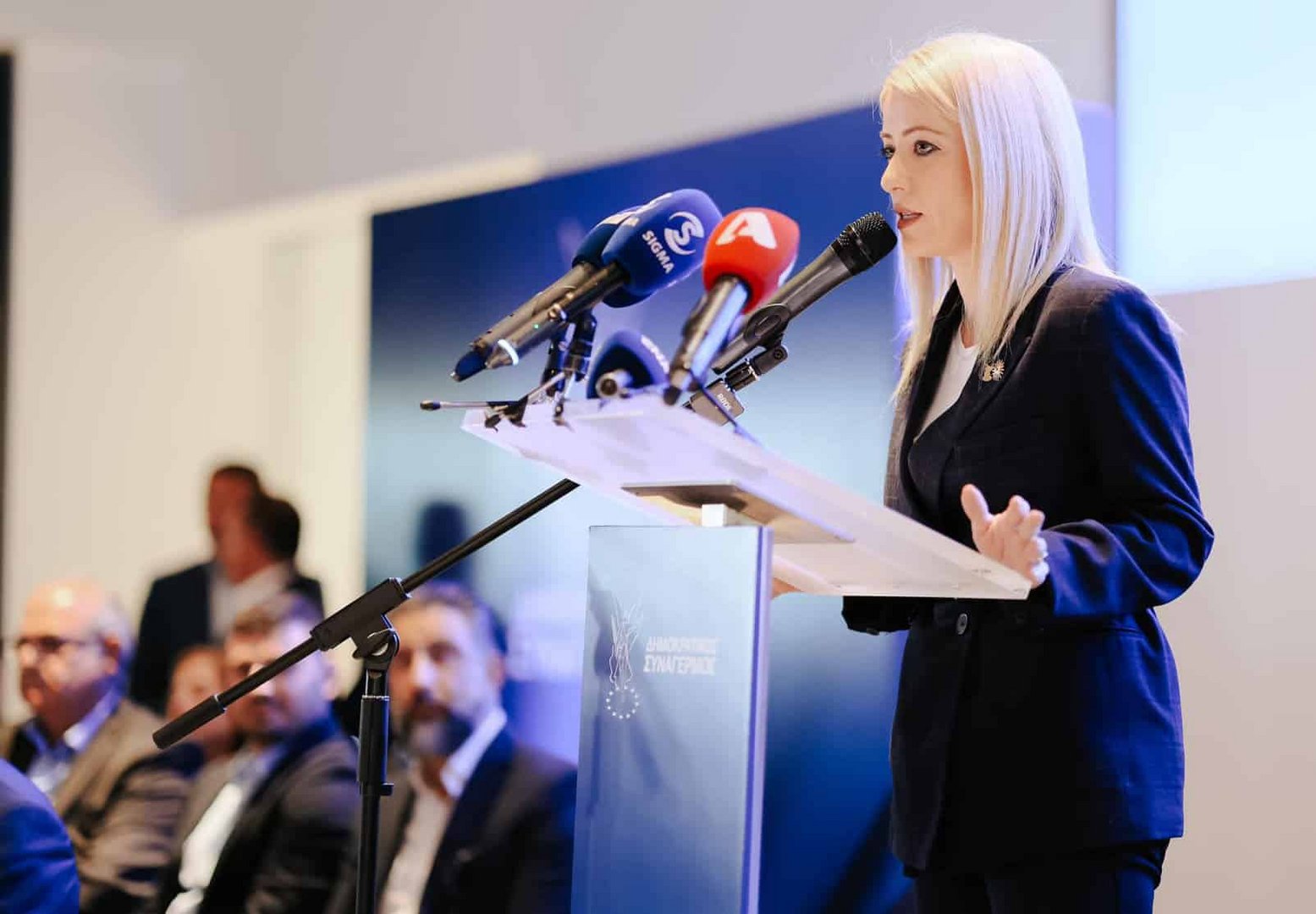When House president Annita Demetriou took over as leader of the deeply divided Disy, in the aftermath of the presidential elections, she was viewed as a temporary solution – a caretaker leader to deal with the infighting and step down when things calmed down and a semblance of unity was restored.
She was viewed as a political lightweight – on social media she was often referred to as ‘Barbie’ – who would not be able to cope with the different factions pulling the party in different directions. And if this were not bad enough, she also had to deal with former president Nicos Anastasiades seeking control of the party from the sidelines.
The calculations have been proved wrong. Demetriou has not only established a degree of unity in the party, which was the priority, but she has gradually strengthened her control of the party. The relatively good showing in the elections for the European Parliament countered the disappointing results in the local government elections, which were decided by alliances rather than party strength and boosted her position.
Before the elections, she minimised Anastasiades’ interference in the party by setting up a council of Disy ‘elders’ at which former presidents, leaders, ministers and deputies of the party could discuss policies and offer advice to the leader. It was a smart move, neutralising Anastasiades’ interference although she still largely has to deal with members of the leadership team pursuing personal agendas.
In the previous week she coped admirably with an embarrassing public row between Anastasiades and her predecessor, Averof Neophytou, while posting her credentials as the leader of the opposition. Leadership members who had tried to take the party closer to the Christodoulides government were prevented from doing so and a confident Demetriou turned her attention to the president’s do-nothing approach on the Cyprus problem.
A scathing critique of Christodoulides’ handling of the Cyprus problem was contained in a letter that was made public, angering the presidential palace, which hit back, without, however, dealing with its substance. Instead, the government’s spokesmen complained about its timing, the fact that it was made public before the president had received it and because it used arguments that helped Turkey’s position. This was a cheap shot, but indicative of how shaken the government was by the Demetriou’s justified public criticism.
Demetriou did not stop there. On Tuesday she went to Athens for a meeting with Greece’s Prime Minister Kyriakos Mitsotakis because she wanted to be briefed about his meetings with Turkish President Tayyip Erdogan as well as his contacts at the UN. Although nothing was mentioned publicly, the visit was a message that she could not rely on the briefings given by the president at national council meetings, to have a full picture of about the Greece-Turkey dealings on the Cyprus issue. That she opted for a meeting rather than a briefing by phone was to remind everyone of Disy’s strong ties with New Democracy government in Greece.
Demetriou may have started her leadership rather cautiously, but she is now showing that she is a force to be reckoned with, which is good news not just for Disy but also the country, which needs a strong opposition leader.







Click here to change your cookie preferences